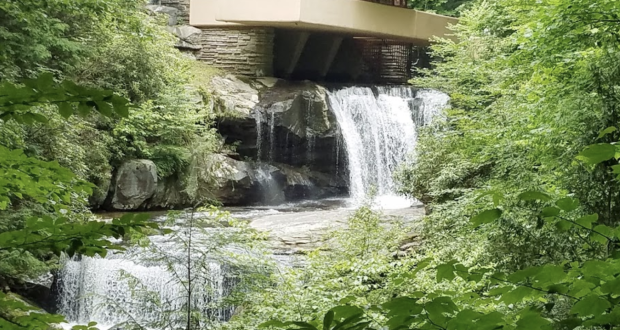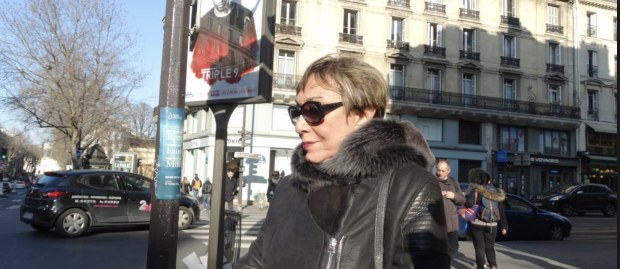
I’m sitting on the porch of my family’s Cretan home, overlooking the city in the valley and the Aegean Sea beyond. I’ve been back here in Iraklion for a week, after four days in the Greek capital, Athens. As always, I’m finding the contrast between the two—Crete, the home of the Minoans, and Athens, the European metropolis, even if a poor cousin of Europe’s—jarring.
Back in my teens, during a visit to a museum in Crete, I read a note that said that Crete was the first European civilization. Even then that struck me as odd and wrong, not only because over a thousand years separated the Minoan era from the classical Greek one, but because Crete just did not feel European. It felt then and still feels now decidedly Mediterranean, not the Mediterranean of the Riviera but more like the Mediterranean of Beirut, more continuous with the silk road heading east than the empire that became Europe.
The note in the museum is, I think, a product of the narrative and phantasy of the British archaeologist, Sir Arthur Evans, who dug up Knossos and claimed it as a precursor of European civilization. Europe claims ancient Greece as its own, but Greece, especially this ancient outpost, resists that story.
The Latin American philosopher Enrique Dussel offers a historical account that congrues with my intuitions. Early human civilizations originated and culminated in the Egyptian-Mesopotamian world, with the Nile as its center and an outward radiating periphery. At the outer edge of that periphery sat Crete’s Minoan world, including Knossos, whose ruins now lie just a few kilometers from my porch outside Iraklion. The Egyptian-Mesopotamian civilization later fell from power and new centers arose in Asia, both in India and China. And these too had their peripheries. The silk road from the Mediterranean to the east provided a path for peoples on the periphery of civilization to travel to the center, just as the emperor Constantine of the Holy Roman Empire in the third century AD, aimed to extend his influence toward the center of civilization in the east.
Contrary to the notion I learned, that Europe’s archaic past began with the Minoans in Crete, there was little continuity between the early Greeks and later Europeans. The Myceneans did come along after 1500 BCE to conquer and displace the Minoans from power. They also took to the seas to travel to Athens to erect the walls of what would become the Acropolis. But that historical trajectory heads east, not north or west, with Alexander’s Greek empire laying the silk road heading toward China. There was no reason for Alexander to go north; there was nothing of any value, certainly not culturally or scientifically, in the place that would become Europe. It’s not that Europe was in a funk, later called the dark ages; it had always been dark. The classical age of Greece never belonged to Europe. It was overtaken by those Romans to the west, namely with the founding of the Eastern Roman church by Constantine, in what became a new world center, Constantinople.
By the end of the first millennium of our current era, the Arab peoples and later the Ottomans took power, blocking any passage from Europe eastward. After the Ottomans seized Constantinople, they still called it by the familiar name, “the city,” but now in their own dialect: “Istanbul” is how the Ottomans pronounced “to the city.” So this new center changed hands but remained the global metropolis to which educated people of the world flocked. Remember those Crusades? They were the attempts of a rather backward European people attempting to get access east—to both Constantinople and India—through the blockade of the Ottoman Empire, to where all the action was. Europe then was a hillbilly backwater, largely, illiterate, beholden to religious dogma and superstition, lacking its own culture and scientific inquiry. But after much failure and bloodshed, the Europeans seeking culture gave up on heading east and decided to get there by heading west instead. En route they tripped over the Americas which they then colonized and plundered. That’s when Europe-the-backwater became Europe-the-superpower, the new center of global power.
So, as I sit here on my porch overlooking Iraklion and the sea and into the distance that becomes Europe, I don’t see a continuity but rather a chasm. Even Athens feels like part of a different world. I feel it in all my daily dealings, from the sound of the bells of the flock of goats and sheep that travel up the side of my house to forage, from the dry air and hazy skies, from the groves of olive trees all around, from the old folks sitting on their own front porches in the neighborhoods of the city, to the narrow winding back roads that my GPS tells me to turn on to for no obvious reason, leading me through ancient alleyways. I feel it when I need to go to the electric utility office, or the water office, or the bank to make sure that the house is okay when all family is away. The house has no street number, getting wi-fi would mean putting in a pole that would cost a thousand Euros. Trying to arrange some order in our affairs, I go from office to office only to find officials in every office pointing to someone in another.
I mention Kafka and everyone looks at me blankly. Franz Kafka, I repeat, the writer who described bureaucratic hell. Who is this Franz Kafka? It is, I slowly realize, my perspective trying to make sense of offices and bureaucracies that do not track neat lines, where no one is in a hurry, where debts may accrue but are rarely called to account, where the people resist Europe’s austerity measures with every possible form of resistance, including refusing to foreclose on a house just because its owners are in arrears. Kafka does not register in Crete because what the Cretan sees is not anonymous disorientation but quiet resistance, however unconscious, to this new cultural center of the European Union, the IMF, the power centers trying to force the Greeks to comply. Athens resists as it can; Crete resists from deep down in its roots.
My house is just off Odos Oulof Palme, a thoroughfare named after the assassinated socialist Swedish leader. A bit behind my house there’s a road named after Cornelius Castoriadis, the Greek Marxist who went to France and became a critic of Soviet-style communism and an advocate for new radical imaginaries. More than half the streets here in Iraklion are named after leftist heroes and martyrs.
Οχι ευχαριστώ. Δεν πειράζει. Αφήστε. No thank you, never mind, leave it alone; in Cretan dialect all these phrases shrug off control and power.
Now finding itself on the periphery of Europe, Crete has no interest in complying. It may go through the motions of neoliberal bureaucracy and taxation, but it also offers a life where one can get along despite it: without a bank account, or an email address, or a landline, even living on the land.Yes, I may well be romanticizing Crete a bit, but this is how it feels. Where my western sensibility sees a Kafkaesque disorientation, the Cretan sensibility seems to see an office one might go to in order to pay one’s bills. But σιγά σιγά, slowly, slowly, no hurry. If the bill is small, nothing will happen if you don’t pay. And where exactly is the bill, I ask. Can I get access to it online? Why not? Where does the mail go when I don’t have an address? The frustration sometimes reduces me to tears.
But maybe I am the one out of sync. If I sit here long enough, maybe I will find my way to sit comfortably in this peripheral zone.

 I just quit Facebook today. It wasn’t that big a part of my life but now that I’ve quit it I realize how much of my cyborg life it was. Just like my phone. I might not use it that much but it is always there. And now FB no longer is, not the scores of people from my adolescent years, not the students and colleagues from my 30s, not my more recent friends from greater DC and Boston, not my current philosophy colleagues from all over the world. Facebook made it possible for me to have all these great connections, just as it made it possible for it to scoop up private data from 31 percent of the global population. Yes, 31 percent. And then monetize us, harvest us, market to us, capture us for whatever they want. So I decided finally, after much prodding from a few friends, to say, no. No more. I have found an alternative to Facebook that promises not to sell my data, not to algorithmize my content, to just let me share my news with people I like. Maybe this is a fantasy that somehow I can keep my personal stuff to myself. But I’m okay with better being a good alternative to unacceptable.
I just quit Facebook today. It wasn’t that big a part of my life but now that I’ve quit it I realize how much of my cyborg life it was. Just like my phone. I might not use it that much but it is always there. And now FB no longer is, not the scores of people from my adolescent years, not the students and colleagues from my 30s, not my more recent friends from greater DC and Boston, not my current philosophy colleagues from all over the world. Facebook made it possible for me to have all these great connections, just as it made it possible for it to scoop up private data from 31 percent of the global population. Yes, 31 percent. And then monetize us, harvest us, market to us, capture us for whatever they want. So I decided finally, after much prodding from a few friends, to say, no. No more. I have found an alternative to Facebook that promises not to sell my data, not to algorithmize my content, to just let me share my news with people I like. Maybe this is a fantasy that somehow I can keep my personal stuff to myself. But I’m okay with better being a good alternative to unacceptable. I just finished watching Ken Burns’ two episodes on Frank Lloyd Wright. I’m left with where I was at the start, with mixed feelings. Yes, Falling Water is one of the most stunning architectural masterpieces of the past century, but for the most part Wright’s architecture focused on creating inner sanctums, not windows to the world. And most of it leaves me cold.
I just finished watching Ken Burns’ two episodes on Frank Lloyd Wright. I’m left with where I was at the start, with mixed feelings. Yes, Falling Water is one of the most stunning architectural masterpieces of the past century, but for the most part Wright’s architecture focused on creating inner sanctums, not windows to the world. And most of it leaves me cold. I’m planning to run a workshop for graduate students on how to manage time, both the time when there’s never enough time and the stretches of time when there is all the time in the world (like a sabbatical). I’m still working on this, so let me run it by you all. Maybe you have some ideas? Please post them in the comments.
I’m planning to run a workshop for graduate students on how to manage time, both the time when there’s never enough time and the stretches of time when there is all the time in the world (like a sabbatical). I’m still working on this, so let me run it by you all. Maybe you have some ideas? Please post them in the comments.